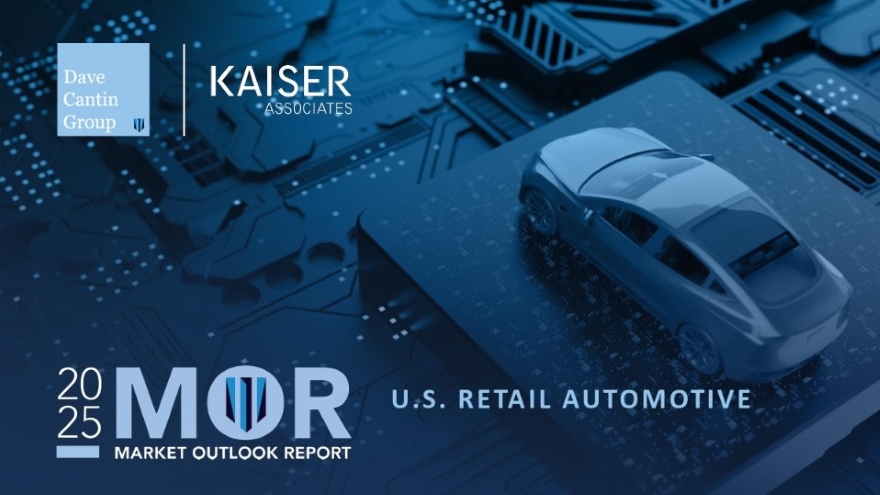Report finds U.S. market hits ‘peak truck’ as consumers seek more affordability

Image courtesy of Dave Cantin Group.
By subscribing, you agree to receive communications from Auto Remarketing and our partners in accordance with our Privacy Policy. We may share your information with select partners and sponsors who may contact you about their products and services. You may unsubscribe at any time.
Pickup trucks and SUVs have long been the dominant vehicles in the U.S. market, but that dominance could be diminishing, according to the latest study by the Dave Cantin Group.
The automotive M&A advisory firm’s semiannual Market Outlook Report, released this week in conjunction with the NADA Show, said its data shows American consumers have reached “peak truck.”
The report cited its December survey of more than 1,000 consumers to show preference for SUV and trucks has dropped slightly — SUVs down from 44% in 2023 to 43%, trucks from 9% to 7% and crossovers from 8% to 6% — while car segments rose in popularity. Sedans rose three percentage points to 29%, while sports cars and hatchbacks each gained a point.
DCG said that shift is likely attributable to affordability issues, with consumers beginning to gravitate toward less expensive cars, a trend the company said “promises to challenge manufacturers lacking competitive sedan offerings.”
The report, produced in partnership with Kaiser Associates, combining DCG’s automotive research and data with Kaiser’s industry analysis. The company said it’s based on data from a variety of current sources, including unique research and modeling, as well as surveys and interviews of consumers, dealership executives, OEMs, supply chain players and industry analysts.
The full report can be downloaded here.
Subscribe to Auto Remarketing to stay informed and stay ahead.
By subscribing, you agree to receive communications from Auto Remarketing and our partners in accordance with our Privacy Policy. We may share your information with select partners and sponsors who may contact you about their products and services. You may unsubscribe at any time.
“Last year, the industry found its new normal, post COVID,” DCG president and CEO Dave Cantin said. “That’s all out the window as we start 2025, because of U.S. and global uncertainty around politics and regulation. Our report identifies and explores the key trends and issues dealers need to understand as they make strategic business decisions in an uncertain environment.”
The report’s consumer survey found prospective car buyers are expecting to pay 8% more ($36,732) for their next vehicle than they did a year ago, but interest in buying a new vehicle has shot up 30%, even though the average new-car price began 2025 at a near-record $49,853. The survey showed 43% of consumers said they will definitely or most likely buy a new car, while 30% said the same about their likelihood of buying used, a 30% year-over-year drop.
In addition, 46% of consumers said they’re likely to pay for their next vehicle in full without a loan, up from 42% in 2023, while just 31% said they would likely get a traditional auto loan, and those that do finance said they intend provide a larger down payment and finance just 55% of the purchase price — 10 percentage points less than the previous year.
Other findings include:
- The 2024 Market Outlook Report said EVs would be just fine, and this year it asserts EVs are “undeniably here to stay.” Consumer interest in EVs and hybrids continues to trend slightly upward, and those with no interest is shrinking. DCG said hybrid and electric vehicles are “undeniably a growth driver and with dealers becoming more receptive to selling these models, we can expect the combined segment to continue to steadily gain market share for the foreseeable future.” The company also noted EVs and hybrids have also driven “surprisingly strong fixed operations for dealers.”
- Consumer sentiment is ruling the market until the political and regulatory environment becomes clear. There’s a bullish sentiment around automotive, but the report noted the unpredictability of political decisions — particularly regarding U.S. trade policies and tariffs and any retaliatory actions — is creating challenges for the automotive sector. Post-COVID predictability just returned and now manufacturers and dealers must navigate this political uncertainty to make informed strategic decisions.
- Dealers are expecting used-car operations to become more profitable and new-car profitability to decline in 2025. The 47% who project used-car profitability was well above the 21% who did so a year earlier. Some 87% of dealers surveyed said parts and service will be profitable, compared to 39% who expected that heading into 2024, with 27% saying a significant profit is likely, up from 4% the previous year.
- Automakers are exerting greater control over dealership networks and inventory management, which DCG said will force dealers to adapt to new operational models and expectations as they face new attempts at direct-to-consumer sales models such as Tesla, Rivian, Lucid and the new Scout brand. “More than ever,” DCG said, “auto dealers will need to evaluate automakers’ strategies, whether they will be successful and if they want to tie their fates to them.”


